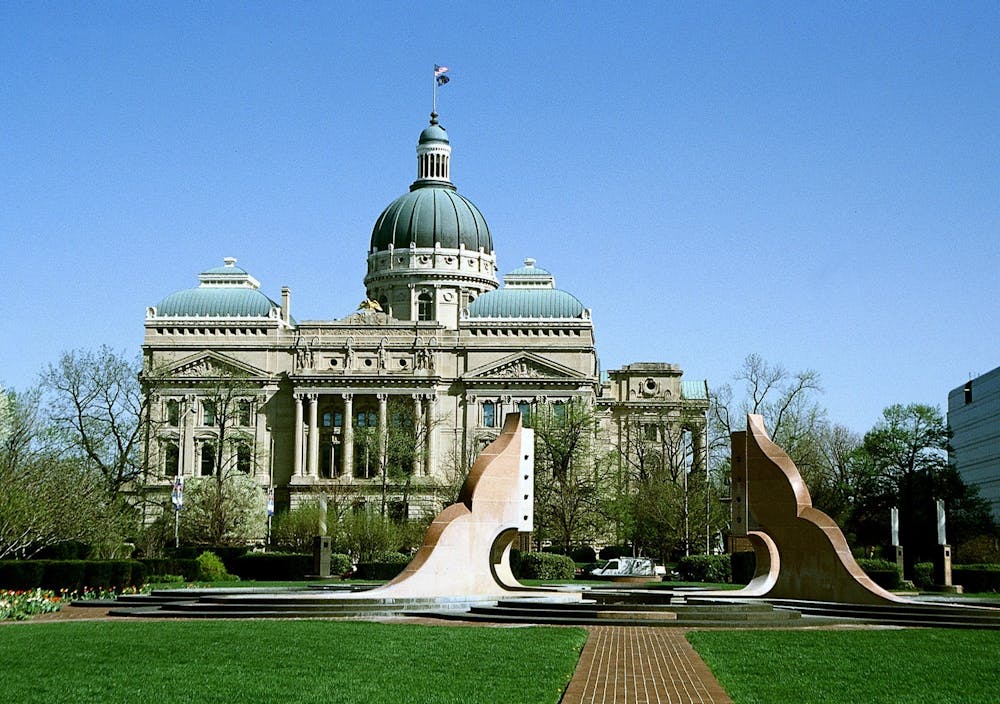Some bills introduced in the Indiana General Assembly that have been prioritized by the Indiana legislators this year involve lifting regulations for development on wetlands, limiting the governor’s powers and establishing the state’s overall budget for two years.
After about three months, these four bills are among the remaining few that could pass through all of the steps before the session adjourns April 29.
House Bill 1001 - the state budget
Indiana legislators are developing the state’s budget for fiscal years 2022 and 2023, which is outlined in House Bill 1001. This bill will determine how much money will be set aside for areas such as capital expenditures, K-12 and higher education and state operations.
Both the Senate and House introduced their versions of the bill, which are subject to change. Now, both versions have about a $22 billion budget for both 2022 and 2023, with slight differences in how much money was allocated to each area.
Since the beginning of the legislative session, the budget bill has adopted some language from other bills expected to pass, such as House Bill 1005, which would create an educational savings account program and extend eligibility to receive private school vouchers to families who have a household income of up to $145,000.
The budget bill also includes sections that would increase the Medicaid reimbursement rate for certain services and impose an excise tax on the retail sale of vapor products.
Joel Hand, lobbyist and general counsel for the Indiana Coalition for Public Education, said the last opportunity for this bill to be amended is after the House and Senate pass their versions of the budget, when it is reviewed by the conference committee. The conference committee, made up of one Democrat and one Republican from each chamber, reviews the two versions and combines them into one document that the legislators vote on, he said.
House Bill 1003 and Senate Bill 2 - funding for virtual instruction in public schools
The state pays each school district based on how many children attend its schools. Current Indiana law dictates schools can only receive 85% of the funding it was going to be allocated for a child if that child only attended class in-person half of the time, Hand said.
“It’s a pretty big chunk of a school’s budget to lose, 15%,” he said.
House Bill 1003 and Senate Bill 1002 are corollary bills which, if passed, would ensure schools that had to provide online schooling receive 100% of their originally-allocated funding, Hand said.
Senate Bill 389 - lifting regulations for developing on wetlands
The state regulates 80% of Indiana’s remaining wetlands, said William Blomquist, Indiana University Purdue University Indianapolis professor and member of the White River Alliance board of directors. The federal government regulates the remaining 20% of the wetlands because the habitats are so closely connected to the federal clean water act, he said.
An Indiana law requires people or companies to apply for and obtain a permit from the department of environmental management for wetland activity in a state-regulated wetland. SB 389 would repeal this law.
The increased development on these areas that could result from this bill passing would disrupt an important habitat for migratory birds and amphibians. The disturbing of these habitats would get rid of plants and soils that filter out contaminants from waterways and ground water, Blomquist said.
“The more contaminants our ground water collects, the more expensive it is to treat it up to drinking water quality,” he said.
Real estate developers are in support of this bill as it would allow for them to build more properties, he said.
House Bill 1123 - limiting the governor’s power to issue emergency orders
House Bill 1123 would require the Indiana General Assembly to approve an emergency order lasting longer than 30 days. It would also allow them to call a special session if the governor declares a statewide emergency.
This bill is more relevant during the 2021 legislative session because Holcomb issued a 30-day public health emergency order March 6, 2020, and has renewed the emergency order every month since.
The power to issue an emergency order and call a special session are reserved for the governor under the Indiana Constitution, which states there needs to be a separation of powers between branches, Blomquist said.
Although the bill may pass through the Indiana General Assembly, seven officials in Holcomb’s administration have spoken out against the bill, indicating Holcomb may veto it, according to the IndyStar. If that veto is overridden by a simple majority, it could be taken to the Indiana Supreme Court to decide if it is constitutional in the state, Blomquist said.
Contacting legislators
Hand and Blomquist both said in their interviews with the Indiana Daily Student there is still time for constituents to contact their legislators and possibly change what gets passed or fails.
One easy and fast way people can message their representative is through the Indiana General Assembly website.
“It is as easy to contact your state legislator as it is to order from DoorDash,” Blomquist said.
Related: [Indiana Senate bill ensuring quality of care in telehealth moves through legislature]



